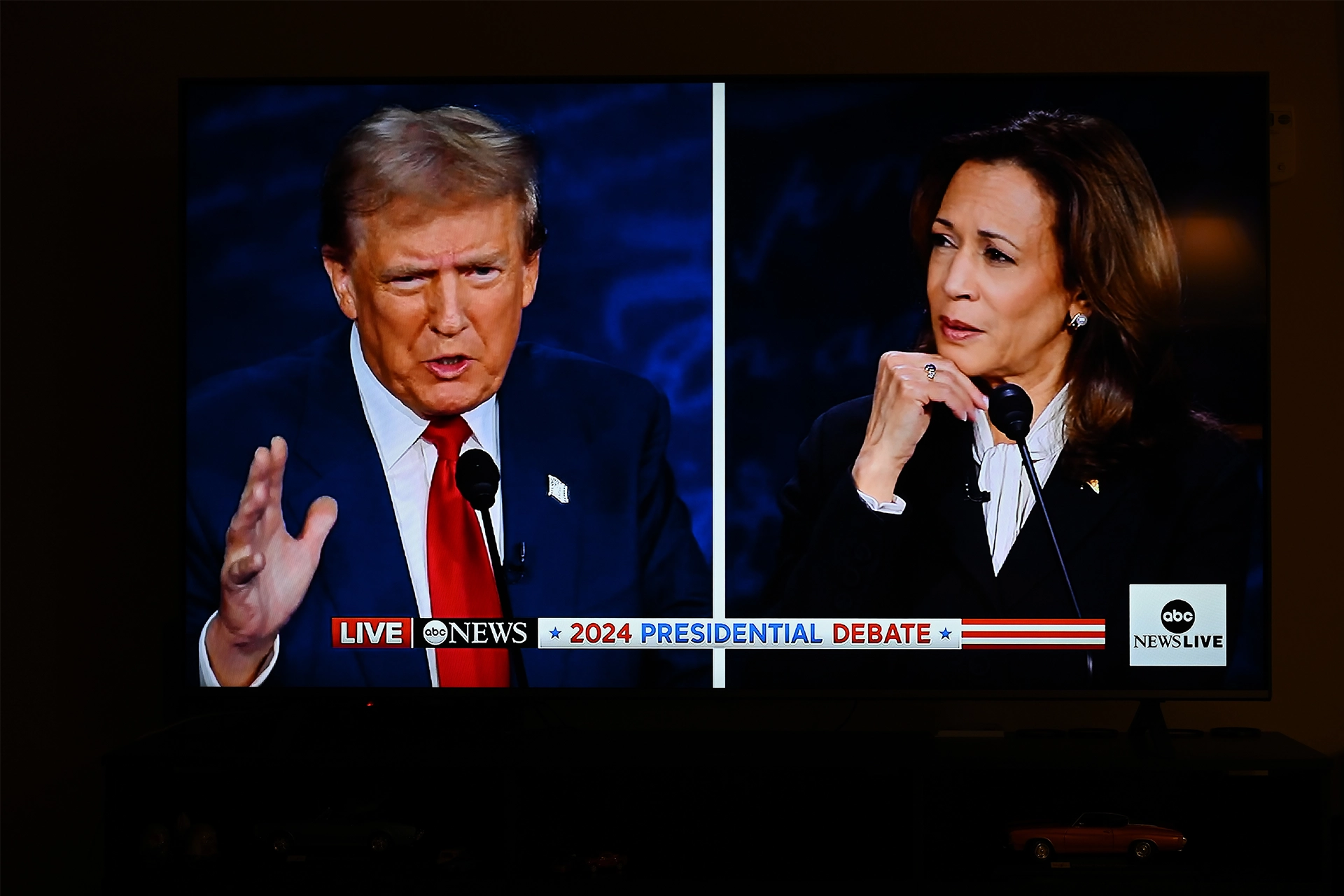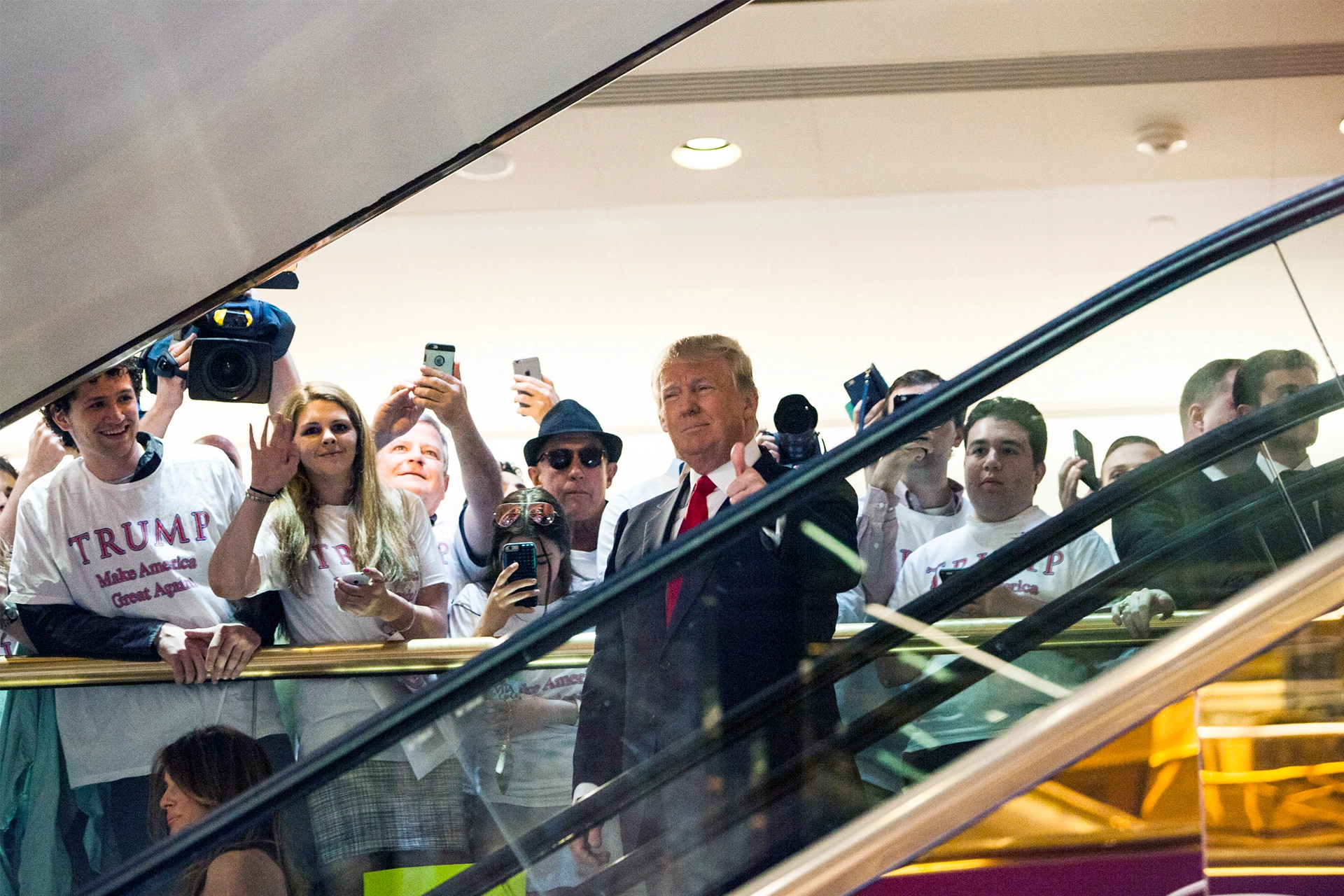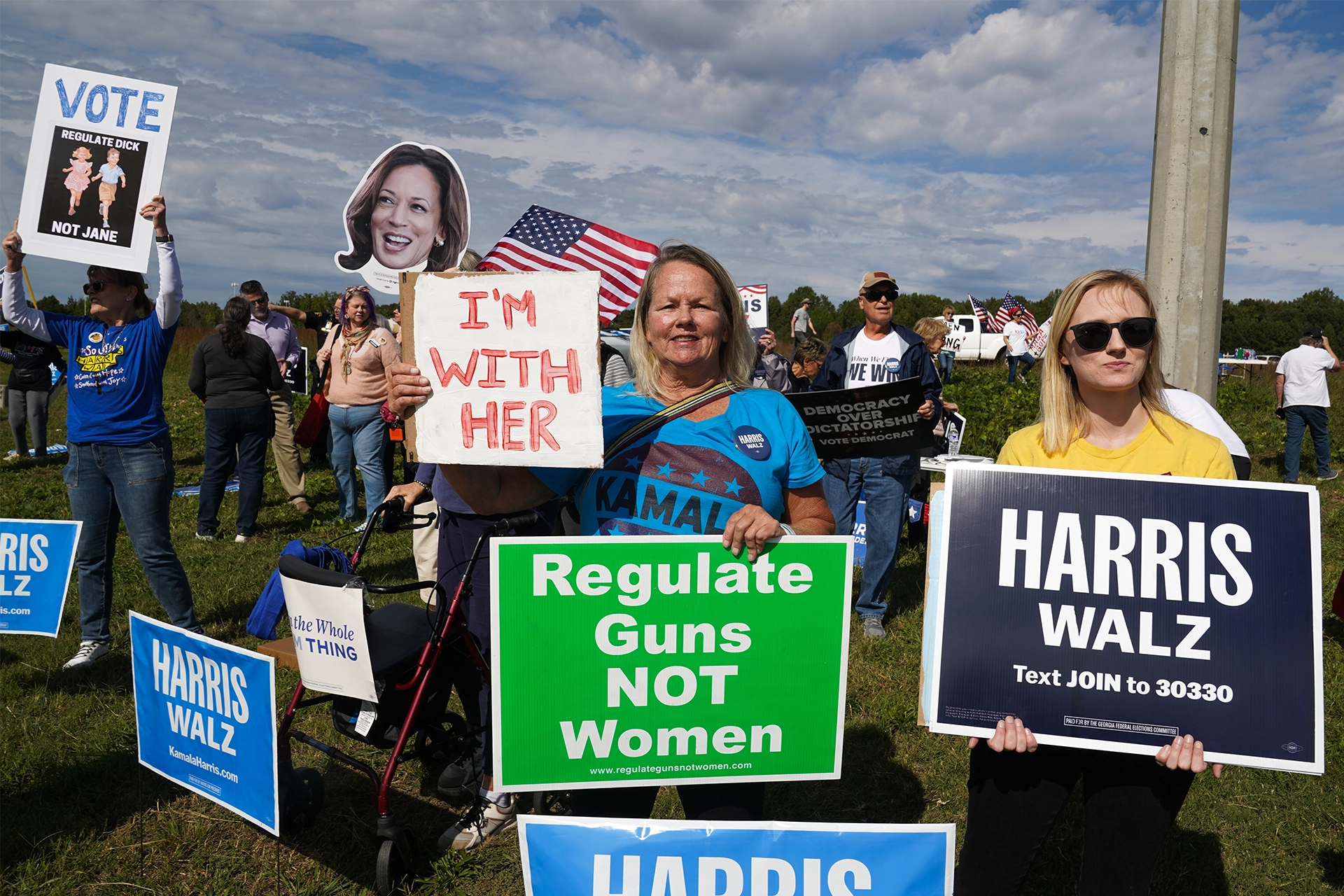
Politics & Society
Episode 3: USA Votes – Harris or Trump?

We must recognise that the future of global democracy, including our own, will be shaped by what happens in America this November
Published 24 October 2024
Earlier this year, I returned to Australia after a ten-year hiatus.
During that time, I watched Donald Trump’s descent down the golden escalator, a moment that defined American politics for years.

The optimism of the Obama era gave way to a period of sharp division, driven by misinformation, fear and entrenched tribalism.
Now back in Australia, I’m reminded that this election holds global stakes. Australia’s trade, defence and diplomatic ties with the US mean that the future of American leadership affects us all.
It’s become cliché to say that Trump is a symptom and not a cause, but it’s true. He’s the result of political shifts that began more than 20 years ago.
After the September 11 attacks, America’s self-image as an invincible superpower started to crumble. Wars in the Middle East and expanded surveillance left deep scars. Automation and globalisation devastated manufacturing communities, erasing jobs that had supported generations.

Politics & Society
Episode 3: USA Votes – Harris or Trump?
The 2008 financial crash deepened these fractures.
Financial security vanished for many, particularly in white working-class communities. Barack Obama’s election in 2008, a celebrated victory for racial progress, felt to some like cultural displacement – a loss of control over their place in society.
Trump didn’t start the fire, he just threw gasoline on it.
His campaign wasn’t just about jobs, but about restoring a sense of identity and power to those who felt left behind. Trump capitalised on fear, but the roots of that fear go back decades.

Watching the US election from Australia offers clarity, but it also means missing some of the chaos on the ground.
Australians don’t see the relentless political ads and yard signs flooding neighborhoods, or hear everyday conversations about fears of losing abortion rights or facing gun violence.
These are the currents shaping American politics, often invisible from a distance.

Politics & Society
Why Donald Trump could win the US election
Most Australians also don’t feel the weight of America’s broken information system. Conspiracy theories that were once fringe have gone mainstream. After a recent hurricane, rumors spread that FEMA had run out of money because it was housing undocumented immigrants – an outright lie, but one that spread fast.
Disinformation has real consequences – January 6 being the most glaring example.
What happens in America shapes global politics, and Australia can't afford to look away.

On the other side of this election is Kamala Harris. She represents a broad coalition of figures from across the political spectrum, from Dick Cheney to Bernie Sanders.
Her platform is center-left but Harris represents a break from the past, and a step toward a more inclusive future. Her rise signals the potential for new leadership that transcends the divisions of the Trump era.
Harris is as different from Trump as one could imagine. Where Trump thrives on division, she seeks big-tent unity. But even if she wins, she’ll face a Republican-controlled Congress, limiting her ability to push reforms.

Politics & Society
Why Kamala Harris could win the US election
The rise of a more diverse electorate has reshaped the US political map.
States like Georgia and Arizona, once solidly Republican, are now swing states. Traditional Democratic strongholds like Wisconsin and Pennsylvania are up for grabs. White working-class voters have shifted toward the Republicans, while Black and Latino communities have spent years building political power.
Interestingly, it’s white voters who are most polarised. Black, Latino, and suburban women sit closer to the center of the political spectrum.
Both candidates are courting these middle-ground voters, rather than appealing to each other’s core supporters.

Harris’s path to victory lies in building a multi-racial, multi-ethnic coalition that reflects America’s changing demographics. This election’s impact will reverberate far beyond America’s borders, shaping democracies around the world.
Global crises are further complicating the race.
The US economy may look strong on paper, but many Americans are still uncertain about their financial futures. Inflation, the pandemic’s lingering effects and foreign interference are all shaping voter sentiment.
Misinformation campaigns from foreign actors are already being felt, and their influence will likely grow as the election nears.

Politics & Society
What a mixed-race presidential candidate means for America’s diversity
For Australians watching the US election, it’s critical to understand that Trump’s rise didn’t happen in isolation.
It’s the product of decades of economic and cultural change, compounded by the spread of misinformation. The stakes of this election are enormous – not just for America, but for the world.
Kamala Harris represents a chance to move forward, to build a more inclusive and equitable society. But even if she wins, the road ahead will be difficult.
As Australians, we must recognise that the future of global democracy – including our own – will be shaped by what happens in America this November.
Cory Alpert served for three years in the Biden-Harris administration and was previously a senior staffer on Pete Buttigieg's historic 2020 Presidential campaign. He was the Senior Advisor to the President of the US Conference of Mayors and helped build the humanitarian assistance technology to respond to major disasters across the US and Ukraine.
He is now completing a PhD at the University of Melbourne studying the impact of AI on democracy.
Cory was part of a debate on the US election on 15 October 2024. This was the third event in the In Pursuit of Knowledge series, which brings together University of Melbourne experts to examine and illuminate the critical issues of our time.